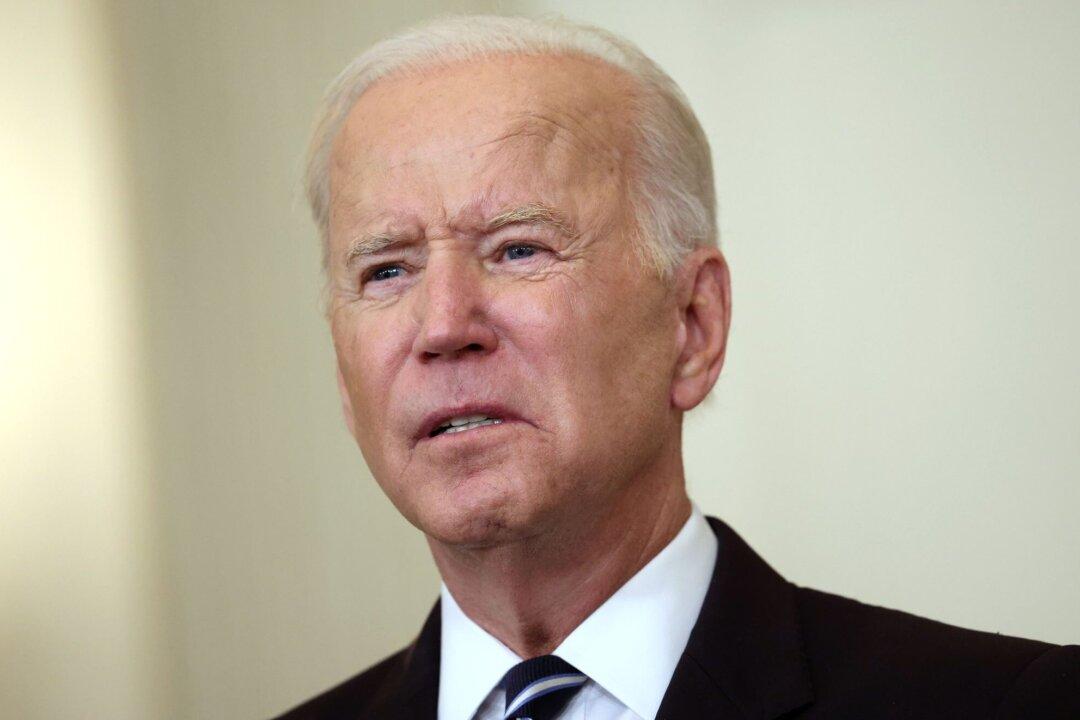President Joe Biden, on the 20th anniversary of the Sept. 11 terror attacks, defended his decision to withdraw U.S. troops from Afghanistan but acknowledged that the terrorist group al-Qaeda may attempt to reconstruct itself in the country following the Taliban takeover.
The president, who marked the anniversary of the Sept. 11, 2001 attacks by visiting all three sites where the hijacked planes crashed, told reporters he believes the terrorist group could “come back.”





